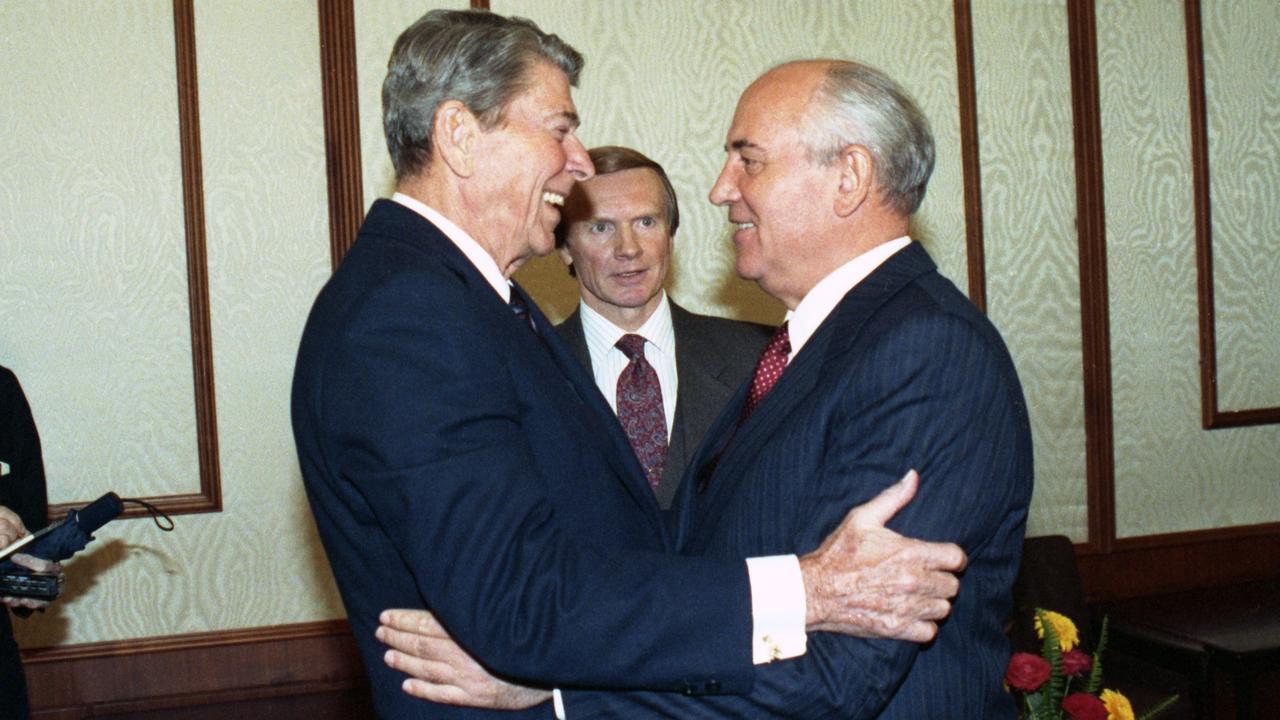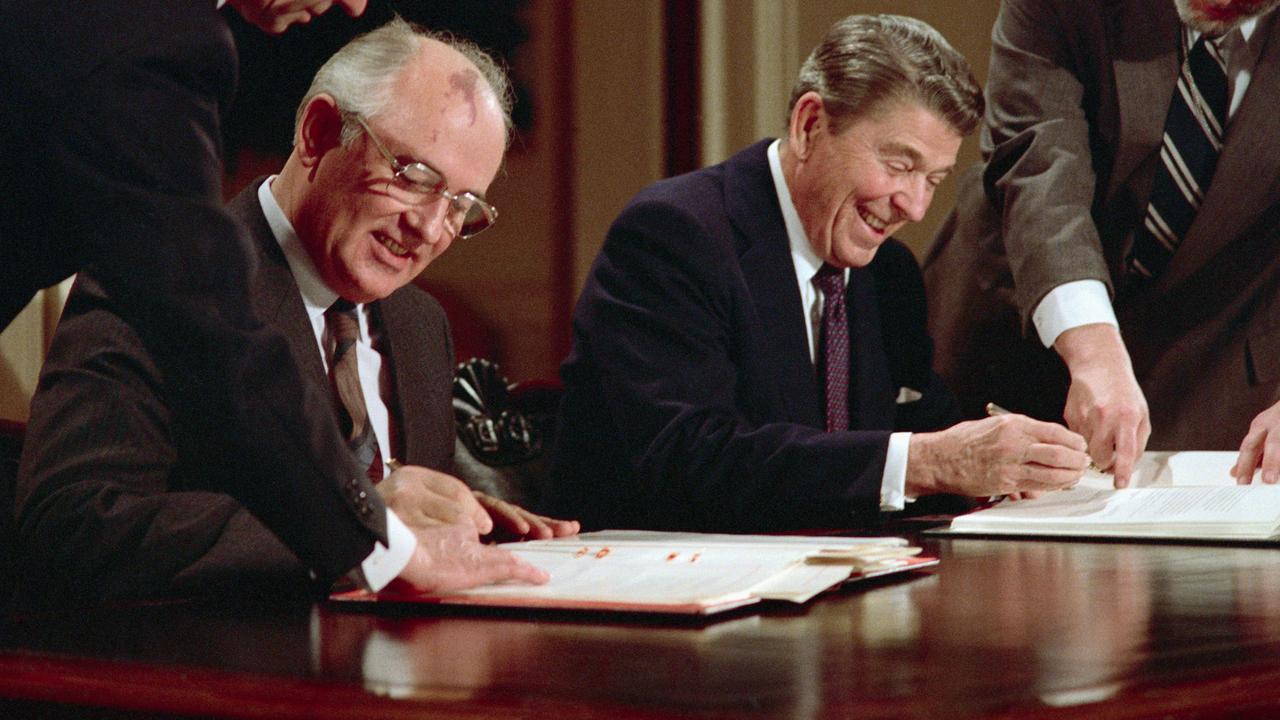Mikhail Gorbachev, the last leader of the Soviet Union, died on Tuesday at the age of 91. He will forever be known as one of the main characters in the fall of the Soviet Union and the end of the Cold War. Gorbachev hoped that the combination of reform and openness would save the Soviet Union from destruction. Inadvertently, his policies led to the exact opposite. So it is not popular in Russia, but it is popular in the West.
Mikhail Sergeevich Gorbachev was born in 1931 and raised in the Soviet Union under brutal dictator Joseph Stalin. Young Gorbachev was a staunch supporter of the de-Stalinization policy of Stalin’s successor Nikita Khrushchev. Stalin’s portraits and statues were removed and inhuman labor camps (gulags) abolished. It inspired Gorbachev to become a political activist.
After studying law at Moscow University, he slowly but surely rose up within the Russian Communist Party, which continued to rule even after Stalin’s death. In 1985 Gorbachev became General Secretary of the Communist Party and thus the leader of the Soviet Union.
He inherited a country that fell into deep decline as a result of the Cold War, especially the arms race with the United States. To make matters worse, the Chernobyl nuclear disaster occurred a year after he took office. Gorbachev realized that the Soviet Union was on the verge of collapse and tried to prevent it with major reforms.
Perestroika and glasnost
With perestroika (literally “reconstruction”) Gorbachev wanted to make Russian industry more modern and efficient. This was necessary after decades of government interference, corruption and a maze of rules. In 1989 he also ended the costly war the Soviet Union had been waging in Afghanistan for ten years.
Glasnost (openness) means that the Soviet Union, government and society, must become more open and transparent. Freedom of the press and freedom of information were to become the new pillars of the system. Soviet citizens were given more freedoms than ever after 70 years and many political prisoners were released. Soviet countries smoked their chance at independence, especially now that the central government was no longer forcibly suppressing such ideas.
Gorbachev also wanted to open the Soviet Union more to foreign countries. From the very beginning of his term, the Soviet leader had a good relationship with his American counterpart Ronald Reagan. The two met frequently. In addition, they have always treated each other in a remarkably friendly manner. A way we haven’t seen before or since between American and Russian leaders.
Ronald Reagan and Mikhail Gorbachev had an intimate relationship. A warm embrace between American and Russian leaders is unimaginable today.

Ronald Reagan and Mikhail Gorbachev had an intimate relationship. A warm embrace between American and Russian leaders is unimaginable today.
picture: Getty Images
“Mr. Gorbachev, tear down this wall!”
On June 12, 1987, Reagan gave a speech at the Berlin Wall. In it he said the famous words “Mr. Gorbachev, tear down this wall!” (“Mr. Gorbachev, tear down this wall!”). More than two years later, in November 1989, the Berlin Wall was actually demolished. After another year, the Iron Curtain was finally lifted with the reunification of Germany. The Soviet Union withdrew its forces from Eastern Europe.
Gorbachev was awarded the 1990 Nobel Peace Prize for his “pioneering role in fundamentally changing East-West relations”. Gorbachev was now the first president of the Soviet Union. He created this situation himself, trying to further reform Russian politics. It turned out that it was in vain.
In March 1990, Lithuania became the first country to break away from the Soviet Union. A year later, a total of 13 others followed, marking the dissolution of the Soviet Union in December 1991. This is widely considered the end of the Cold War. In any case, it marked the end of Gorbachev’s political career.
Liked in the West, hated in Russia
It is unlikely that Gorbachev foresaw or even wanted all the consequences of his policies. After the fall of the Soviet Union, he gave lectures and established his own foundation. He went on to meet Reagan and even starred in an advertisement for an American pizza chain. As a result, he remained popular in the West.
In Russia, Gorbachev was seen as the man who broke the Soviet Union and “lost” the Cold War. His lack of popularity in Russia became painfully evident after he secured less than 5 percent of the vote in the 1996 presidential election.
After that, the former president regularly criticized his successors. Gorbachev was particularly critical of Vladimir Putin’s aggressive attempt to make Russia a world power again. Journalists often asked him to explain the relationship between the United States and Russia.
Gorbachev died after a long illness, according to the hospital where he was breastfed. It is unclear exactly what he has suffered, but he has been in constant need of medical care since 2020. He will go down in history as one of the most influential and “humane” political leaders of all time. Something that was praised even by Putin.








